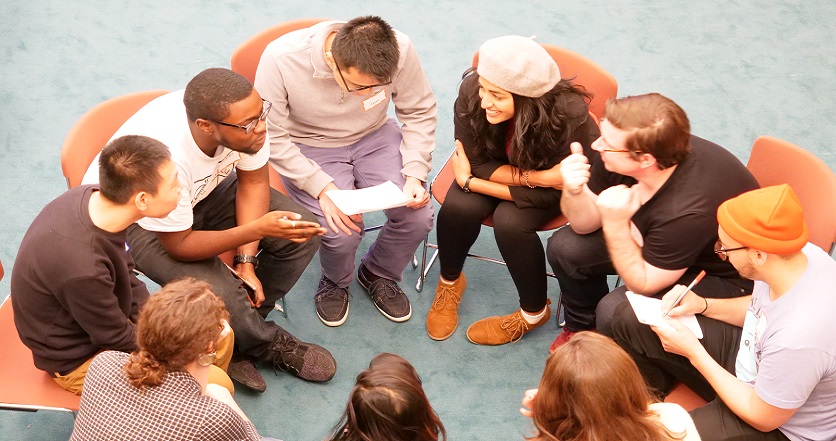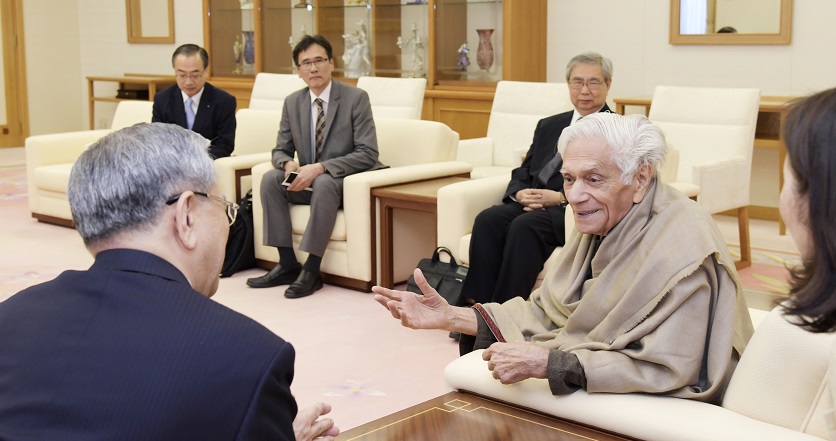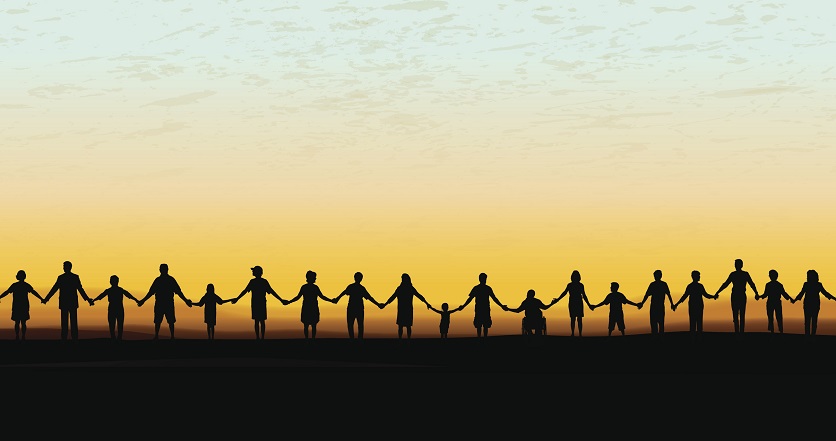A Compassion Revolution: Carlos Rubio on the Universality of Nichiren’s Teachings

Spanish scholar Carlos Rubio is an authority on linguistics and professor of translation theory who supervised the Spanish-language edition of The Writings of Nichiren Daishonin. Before his retirement, he was a professor at Complutense University of Madrid and prior to that at the University of Tokyo. In the following interview in the February 16, 2021, issue of the Seikyo Shimbun, the Soka Gakkai’s daily newspaper, Dr. Rubio talks about what we can learn from the indomitable and compassionate spirit of Nichiren in the context of modern-day society.
You have spoken previously about the relevance of the writings of Nichiren Daishonin in contemporary society. Can you explain?
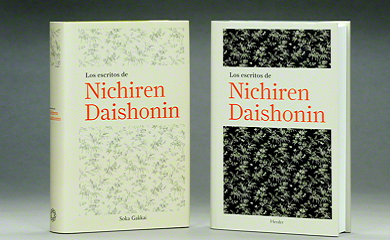
I was lucky enough to work continuously for several years, between 2004 and 2012, on the Spanish edition of The Writings of Nichiren Daishonin and a translation of the Lotus Sutra. Earlier, during my years as a professor at the University of Tokyo, I worked on the translation of other Soka Gakkai-related writings. These experiences were for me, intellectually and in a simply human sense, a treasure fallen from heaven for which I will always be deeply grateful.
I believe there are two essential qualities of a world religion: the universality of its religious message and its independence from the political power of its time. Nichiren’s writings meet both these requirements.
These are the same qualities, in effect, that the New Testament of the Bible and the Koran possess. Jesus Christ, with his universal message of love, suffered persecution and crucifixion for his ideals, and the prophet Muhammed, with his message of peace, also experienced persecution and exile.
“I believe that in the third millennium, The Writings of Nichiren Daishonin, which are about relieving the suffering of ordinary people, will exert an influence comparable to that of the Bible and the Koran in the preceding two millennia.”
In the case of Nichiren, his message of the universal possibility of the attainment of Buddhahood is reinforced by his courageous ideological independence. Perhaps most admirable in the context of a society as hierarchical as his is his messianic confidence in his mission and his independence from all authority, as expressed in his writing “The Selection of the Time.” In it, he states, “Even if it seems that, because I was born in the ruler’s domain, I follow him in my actions, I will never follow him in my heart.”
For these two main reasons—the universality of Nichiren’s teachings and their independent spirit—I believe that in the third millennium, The Writings of Nichiren Daishonin, which are about relieving the suffering of ordinary people, will exert an influence comparable to that of the Bible and the Koran in the preceding two millennia.
In today’s society, while the development of information technology has enhanced communication, it has also given rise to conflict and divisiveness. In that regard, world religions will play an increasingly important role.
I think there are two other important qualities that a global religion must possess in today’s world.
One is multiculturalism. I understand that Nichiren Buddhism is practiced in over 192 countries and territories around the world. Each country has its own rich cultural tradition. I am sure that over time the social mobility between these culturally diverse communities united by the same belief will cause the Soka Gakkai to develop even further as a global religion.
Another condition that I believe a global religion must have in today’s world is that it carry a message of peace, tolerance and dialogue.
Despite incidents of nationalism and retrograde attitudes, the world in the 21st century is moving steadily toward a globalized, plural society—a society that will not be able to accept religious messages that are not based in the values of peace, tolerance and dialogue. I sincerely believe that, by tradition and nature, Buddhism has much to offer and teach in this regard.
This year marks the 800th anniversary of the birth of Nichiren Daishonin. Nichiren wrote “On Establishing the Correct Teaching for the Peace of the Land” during the Kamakura period in Japan when the nation was in the midst of recurring epidemics and natural disasters. What do you think we can learn from his thoughts and actions with regard to confronting social challenges in our own time, as we face the COVID-19 pandemic and climate crisis?
In “On Establishing the Correct Teaching for the Peace of the Land” Nichiren writes:
“In recent years, there have been unusual disturbances in the heavens, strange occurrences on earth, famine and pestilence, all affecting every corner of the empire and spreading throughout the land. Oxen and horses lie dead in the streets, and the bones of the stricken crowd the highways. Over half the population has already been carried off by death, and there is hardly a single person who does not grieve.”
Nichiren’s philosophy of egalitarianism is . . . relevant today, for all people, regardless of gender, race, age, belief or economic or social position to undertake a compassion revolution.
It’s remarkable that these words written over 760 years ago now sound so prescient! During the Middle Ages when Nichiren lived, people turned to religion to understand the causes of catastrophic events in the natural and social world. In this context, Nichiren attributed natural calamities and human disasters such as the two attempted Mongol invasions to the unfortunate fact that the society and the rulers of his time were following erroneous teachings.
Now, during the pandemic, health authorities are promulgating strong health precaution recommendations, which is great. However, I often wonder why the authorities don’t recommend with the same insistence that we strengthen our love and compassion, which are a strong antidote to isolation and mistrust.
I would like to think that if he were alive today, Nichiren would be advocating a true “compassion revolution.” This is the message I like to think Nichiren would be promoting in these difficult times. I am sure that he, with his characteristic audacity, would raise his voice against our way of life that is divorced from nature, against the dissolution of family ties, against environmental destruction, against inhumane materialism and against the disparities and isolation that characterize modern society.
The two aspects of Nichiren’s personality that impress me most are his indomitable spirit and his courageous independence of judgment and action in the face of the political power of his time.
I believe that, in the current crisis, we too can raise our voices and be living examples of the transformative power of Nichiren Buddhism, carrying out a compassion revolution in our own hearts and among the people around us.
Nichiren, as we know, was a man of dialogue, a lover of words, always ready to converse with anyone. His disposition for dialogue is a consequence of the pacifist spirit of Buddhism.
If we walk across the bridge of dialogue armed in our hearts with compassion, as Nichiren taught us, social change will be possible.
You have described the attitude of gender equality evident in Nichiren’s writings as an example of the universality of his philosophy. Can you elaborate on that?
Despite the rhetoric in favor of equality in the world today, flagrant gender inequality persists in many societies. In this sense, Nichiren’s attitude of respect for women is surprisingly modern, universal and appealing.
Traditional Buddhism held that women could not attain Buddhahood unless they were reborn in male form in some future existence. The Lotus Sutra, however, contradicts this. The “Devadatta” (12th) chapter of the Lotus Sutra describes the attainment of Buddhahood by the Dragon King’s daughter. Nichiren elaborates on this in his writing “The Opening of the Eyes,” stating: “When she [the dragon king’s daughter] attained Buddhahood, this does not mean simply that one person did so. It reveals the fact that all women will attain Buddhahood.” And, “When the dragon king’s daughter attained Buddhahood, it opened up the way to attaining Buddhahood for all women of later ages.”
In another writing, “The Unity of Husband and Wife,” Nichiren states: “Only in the Lotus Sutra do we read that a woman who embraces this sutra not only excels all other women, but also surpasses all men.” His letters to female believers are written with a simplicity and gentleness that is worth noting.
Nichiren’s philosophy of egalitarianism is an invitation, relevant today, for all people, regardless of gender, race, age, belief or economic or social position to undertake a compassion revolution.
During the religious unification of 15th-century Spain, Catholicism was the spiritual axis of national integration. After Spain became a democratic nation, Catholicism ceased to be the state religion. Nevertheless, the Catholic religion continues to have a profound influence on the culture and customs of Spanish society. What aspects of Nichiren Buddhism resonate with the Spanish people?
When I was a child, I often saw maps of the world color-coded by religion. Blue designated Catholicism in central and southern Europe and South America. Purple for Protestantism in northern European countries and the striped, dual color-code of blue and purple was for North America. Communist countries such as the USSR were designated by yellow to signify the non-existence of religion. Islamic nations had a different color-code; Asian nations, including Japan, were also designated by a separate color to denote Buddhism.
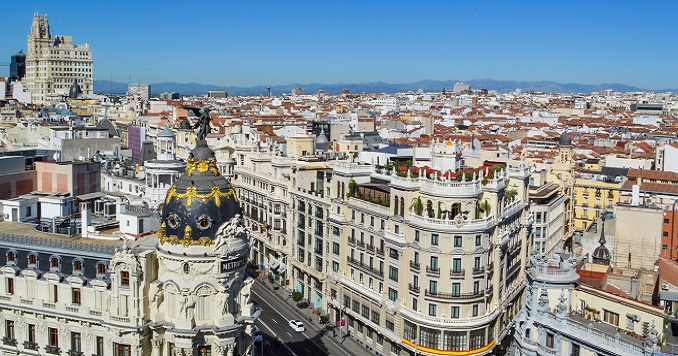
Today, however, such a simplification would be unacceptable. Migratory flows, globalization and multiculturalism have led to different religious communities flourishing in countries traditionally dominated by a single religion, as with Buddhism now flourishing in Spain and countries in Latin America. Spain is of course a traditionally Catholic country. With the exception of the period of Muslim rule of southern Spain, its historical and cultural context has been Christian-Catholic for more than fifteen hundred years. Judaism and Protestantism have also persisted there through the centuries, although only marginally. Until as recently as 50 years ago, Buddhism was considered an exotic religion, alien to Spanish culture. Today, when probably less than 10 percent of the population are practicing Catholicism actively, this is no longer the case.
It seems to me that Nichiren Buddhism may be attractive to Spaniards for three specific reasons. The first is Nichiren’s fascinating character and personality, especially his clear vision and his unyielding attitude toward authority.
If we walk across the bridge of dialogue armed in our hearts with compassion, as Nichiren taught us, social change will be possible.
Second is Nichiren Buddhism’s focus on the inner life of individuals. Its emphasis is on seeking the truth within one’s heart, rather than on external formalities or mere words. Nichiren writes, for example: “Neither the pure land nor hell exists outside oneself; both lie only within one’s own heart.”
This emphasis on internalization rather than formality or symbols was also prominent for Jesus Christ, and I think Christians especially appreciate it.
Third, and I think that this aspect is new for Christians but very interesting, is the perspective on reality as expressed in the principle of “three thousand realms in a single moment of life,” according to which the entire universe is contained within our individual lives. This theory is increasingly attractive to Spaniards from traditionally Christian backgrounds.

I foresee that in Latin American countries, where, historically and culturally, Catholicism blended with indigenous beliefs and traditions as it spread, there may be an even greater embrace of Nichiren Buddhism than in Spain. I believe the spiritual vitality and intellectual curiosity of the people of Latin America, as well as the population growth in many Latin American nations, will create fertile ground for the spread of Nichiren Buddhism.
Finally, can you share your expectations for the Soka Gakkai and the SGI (Soka Gakkai International)?
I have always felt that a religion’s credibility depends on its independence from political authority, which too often has large economic interests divorced from the pressing daily issues facing the majority of people and the problems faced by humanity as a whole. Examples of these include environmental destruction, the nuclear threat, global hunger, child labor, gender-based violence and the current health crisis.
In this respect, the Soka Gakkai, a lay and independent organization, is fulfilling a vitally important mission and is a major source of inspiration and hope.
And in these times of pandemic and insecurity, in this uncertain age that Buddhism describes as “The Latter Day of the Law,” hope is what the world needs.





